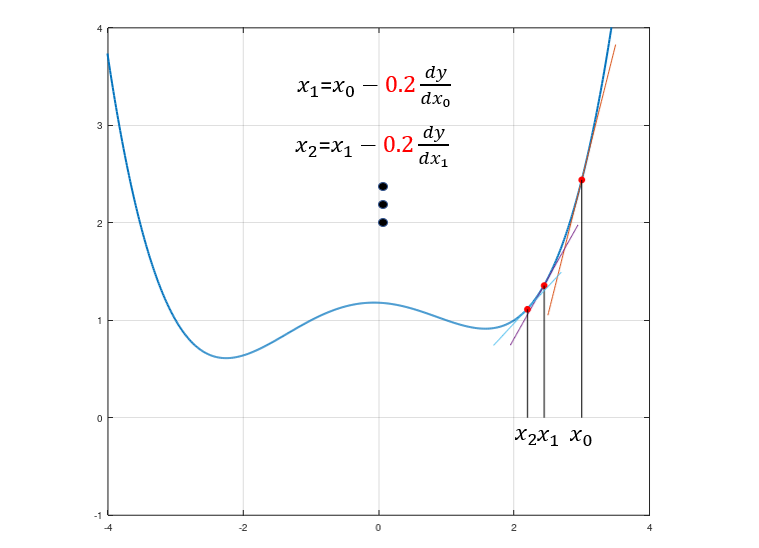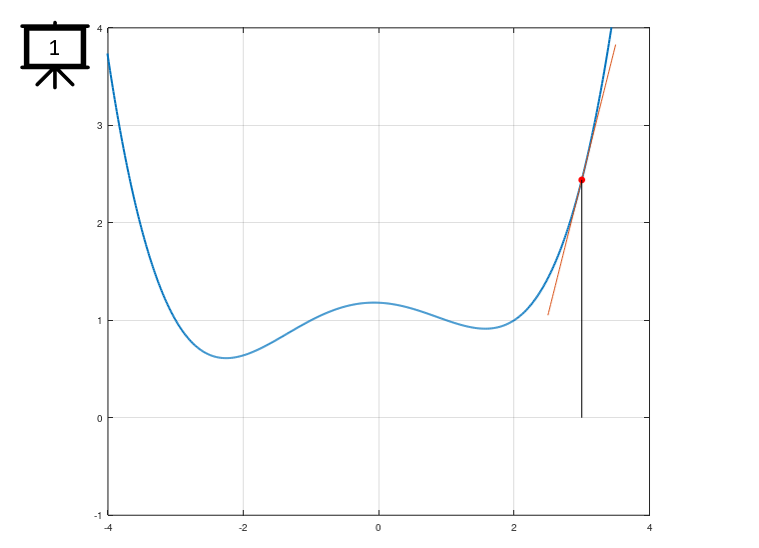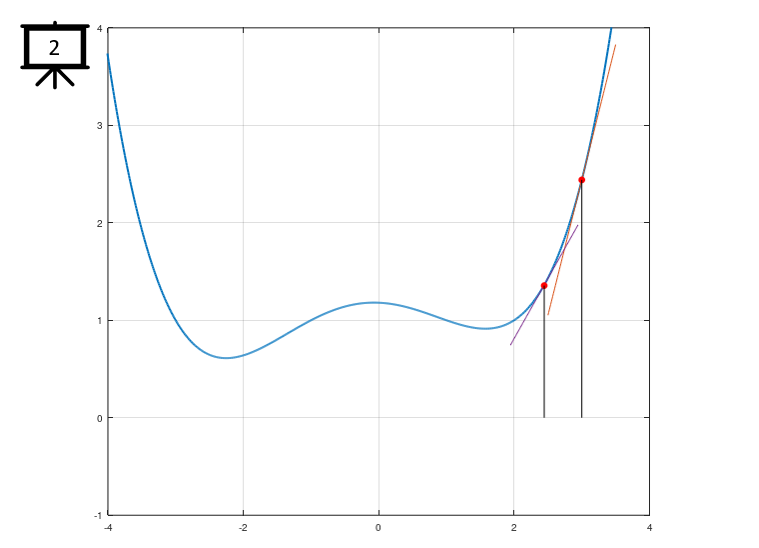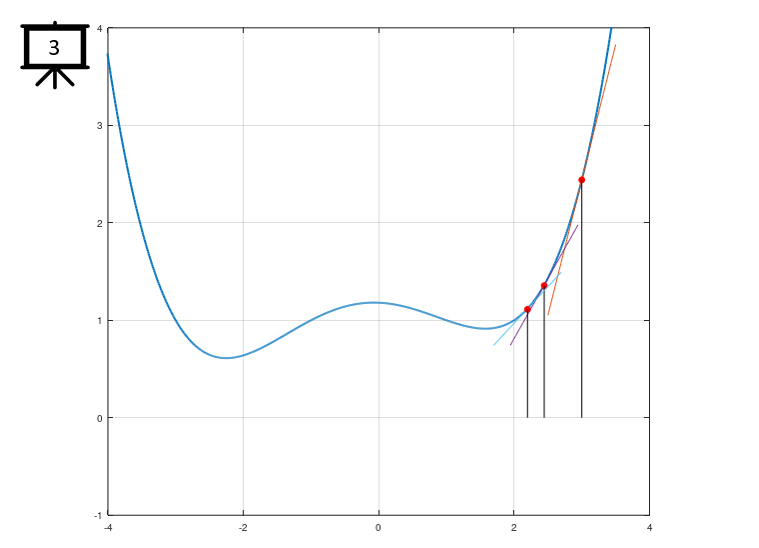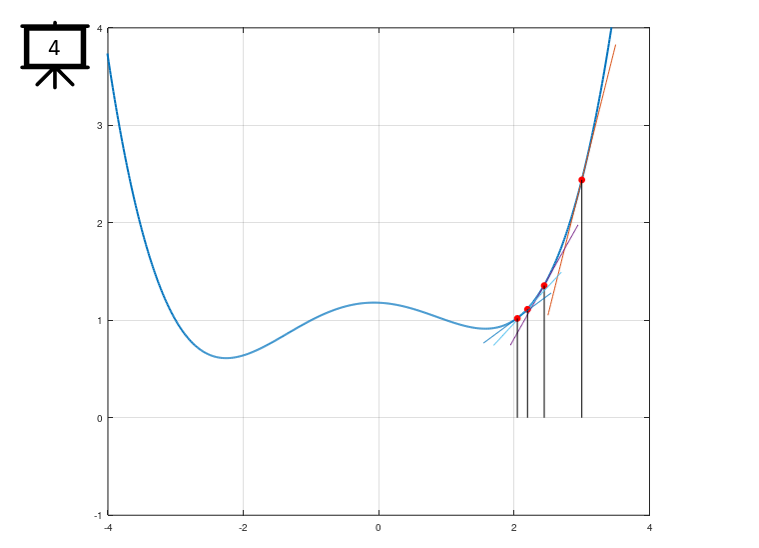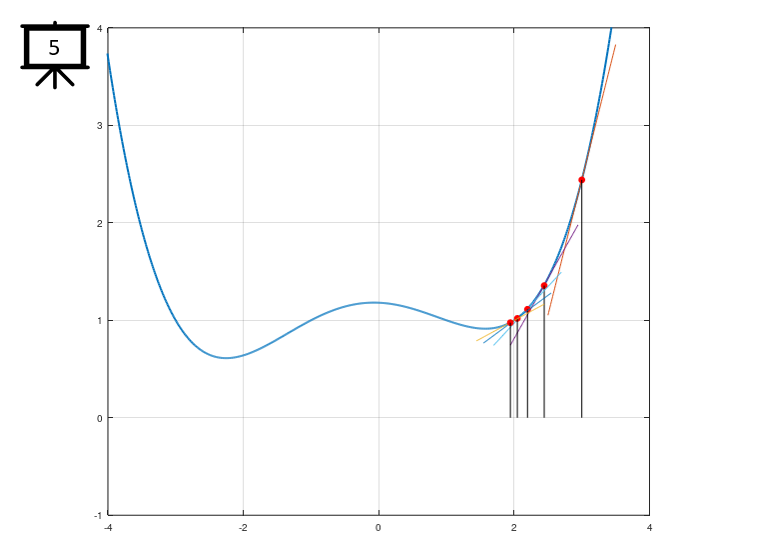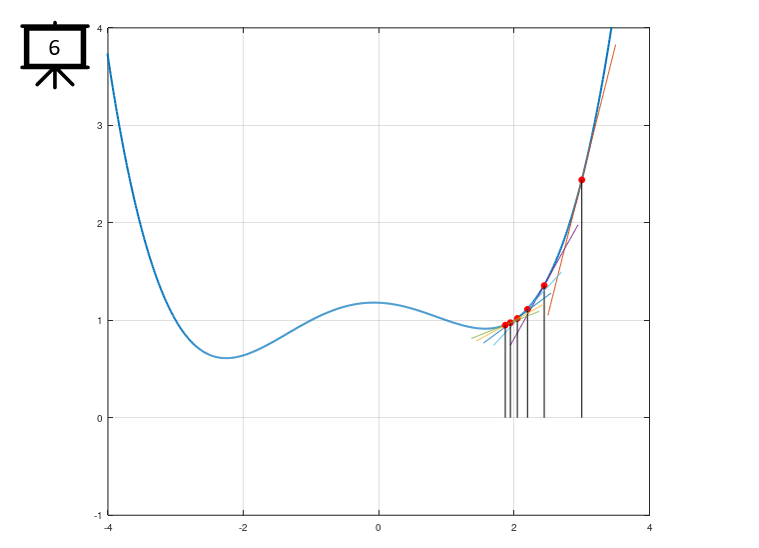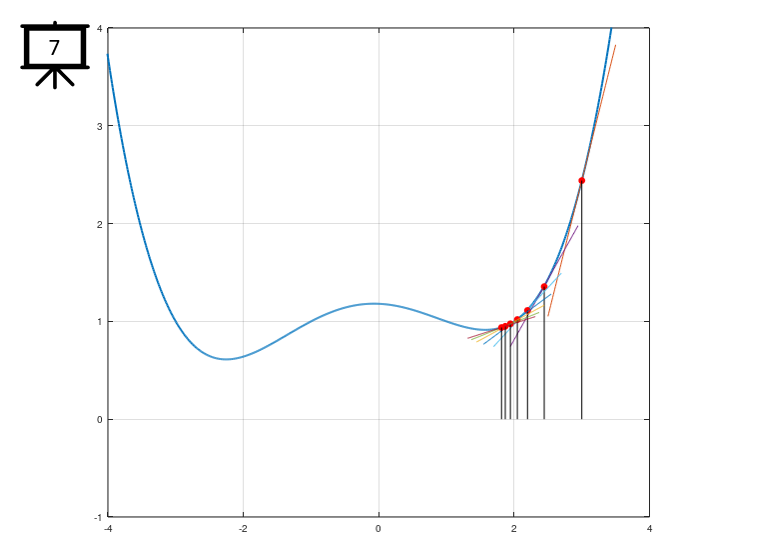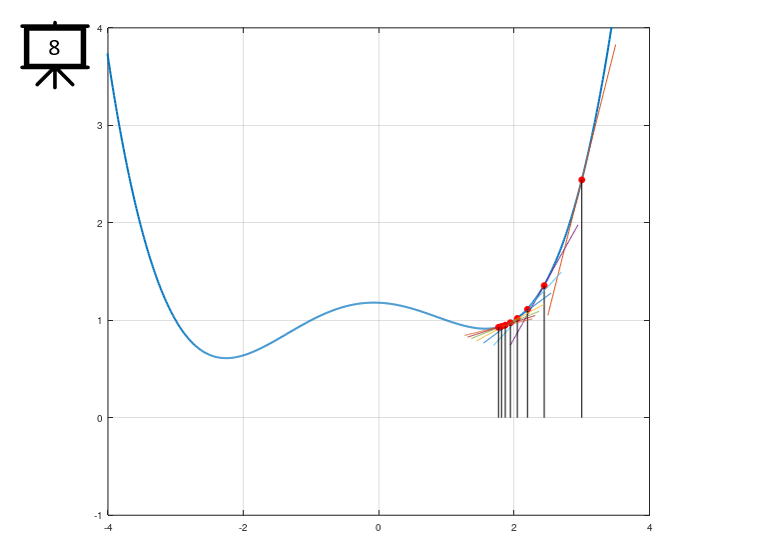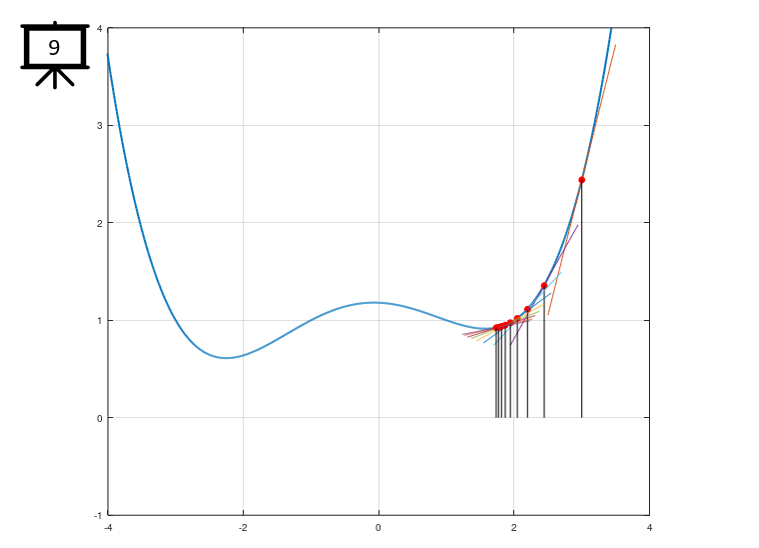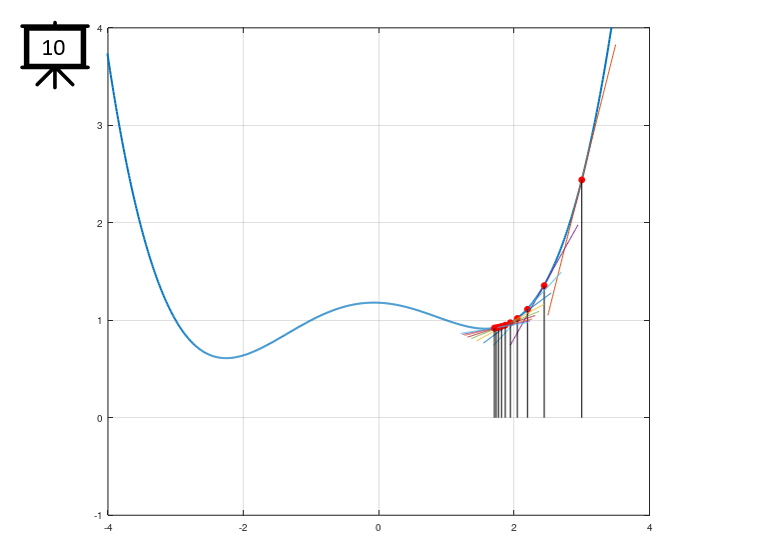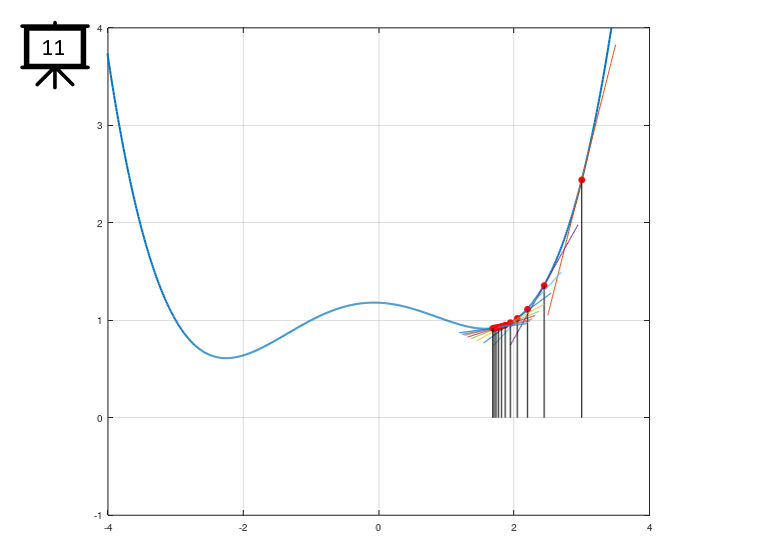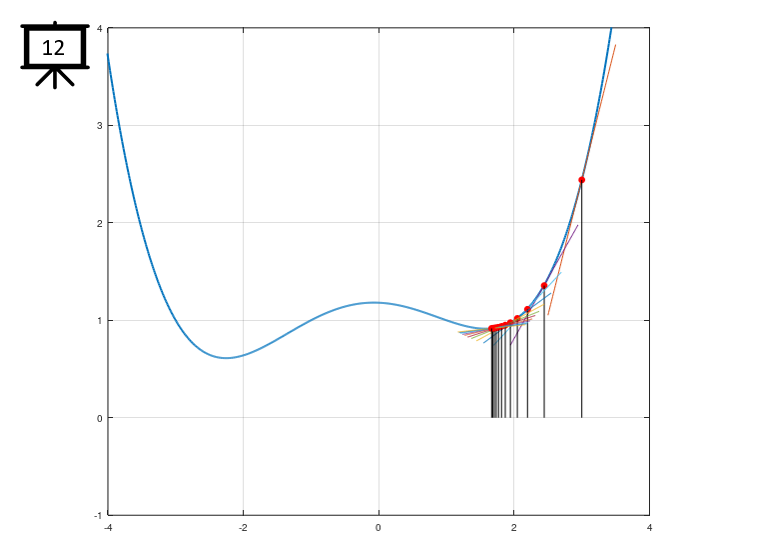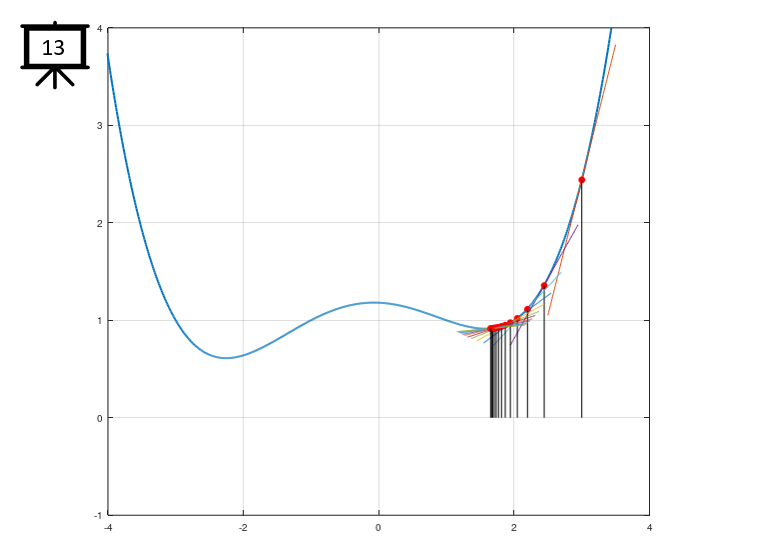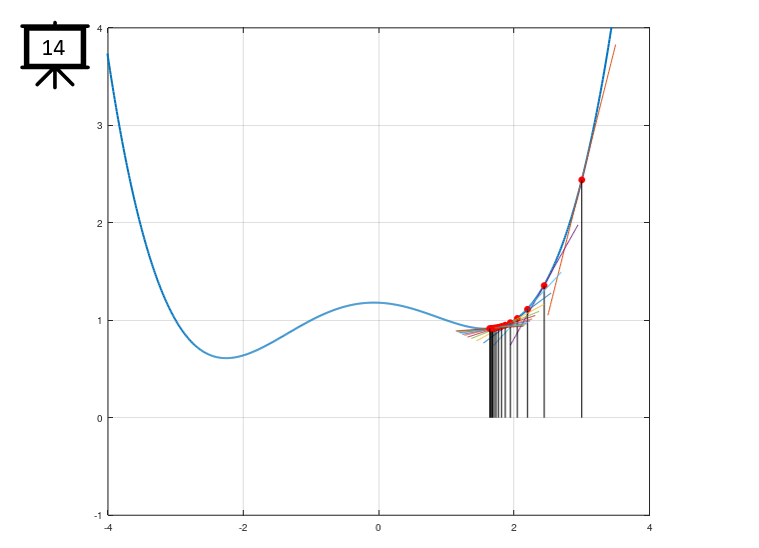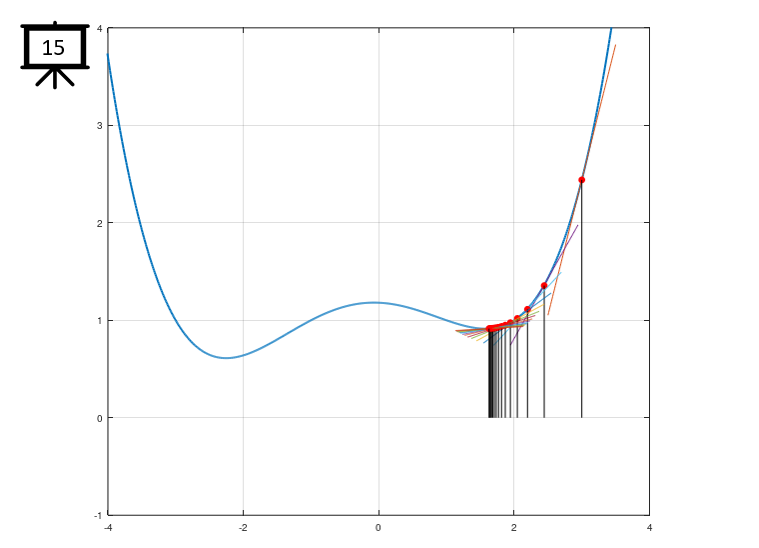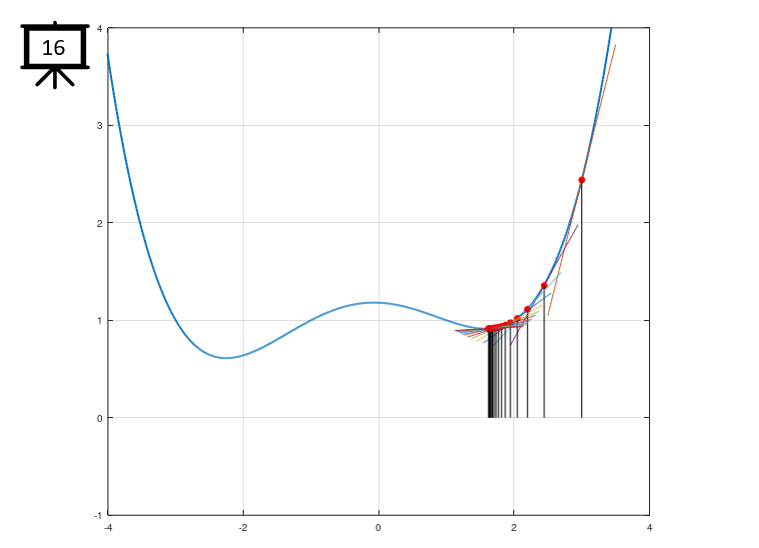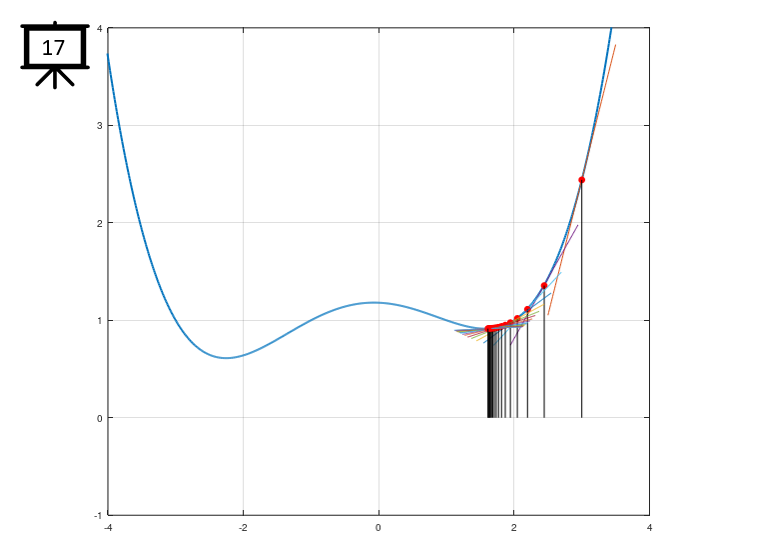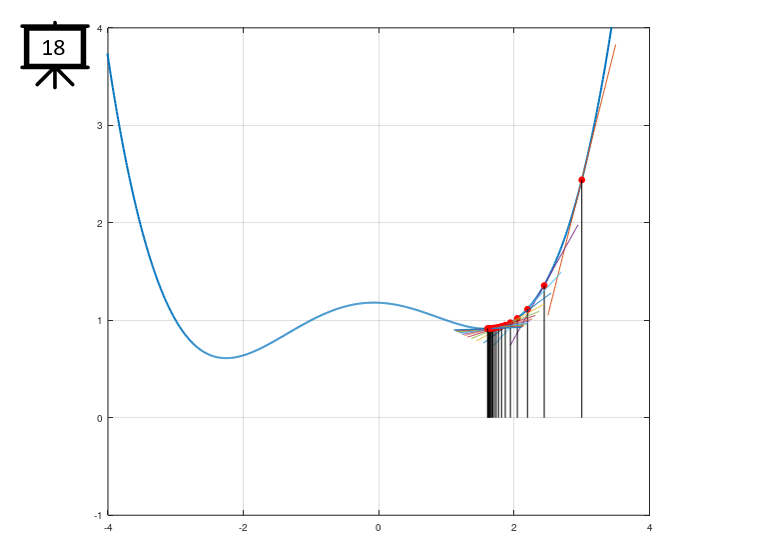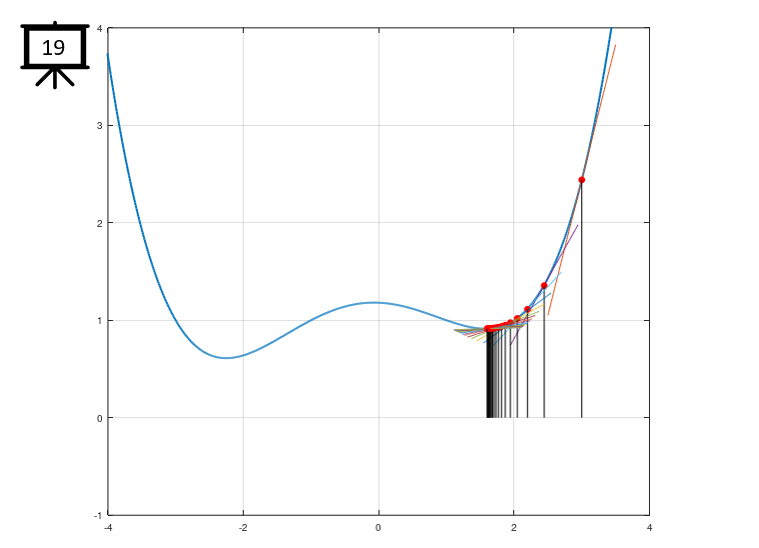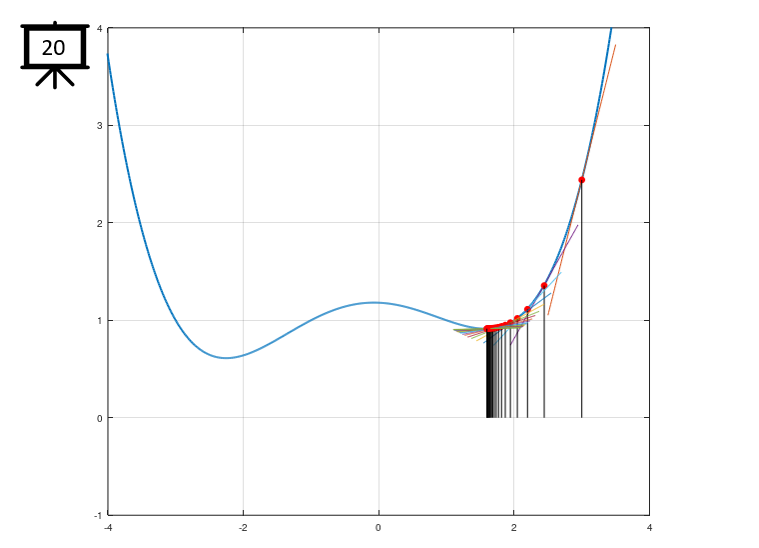|
Followings are the code that I wrote in Octave to creates all the plots shown in this page. You may copy these code and play with these codes. Change variables and try yourself until you get your own intuitive understanding.
< Code 1 >
function main
t = -6:0.01:6;
y = 0.03 .* (t + 3) .* (t + 1) .* (t-1) .* (t - 2) + 1;
v = 3.0;
xSpan = 1.0;
xStep = 0.01;
alpha = 0.2;
nStep = 20;
hFig = figure(1,'Position',[300 300 700 600]);
plot(t,y,'LineWidth',2);
axis([-2 2 -1 4]);
grid on;
hold on;
for n = 1:nStep
[tx, ty] = GetTangentLineAt(t,y,v,xSpan,xStep);
vIdx = GetLowerMaxIndex(t,v);
vy = y(vIdx);
vs = GetSlopAt(t,y,v);
plot(tx,ty);
plot(v,vy,'ro','MarkerFaceColor',[1 0 0]);
line([v v],[0 vy],'color','black');
v = v - (alpha * vs);
end;
hold off;
end
function [tx,ty] = GetTangentLineAt(x,y,v,xSpan,xStep)
a = GetSlopAt(x,y,v);
xIdx = GetLowerMaxIndex(x,v);
x1 = x(xIdx);
y1 = y(xIdx);
b = (y1 - a*x1);
tx = (v - 0.5*xSpan) : xStep : (v + 0.5*xSpan);
ty = (a .* tx) + b;
endfunction
function s = GetSlopAt(x,y,v)
i = GetLowerMaxIndex(x,v);
dx = x(i+1)-x(i);
dy = y(i+1)-y(i);
s = dy / dx;
endfunction
function idx = GetLowerMaxIndex(x,v)
idx = 1;
for i = 1:length(x)
if x(i) > v
idx = i-1;
break;
end;
end;
endfunction
|
